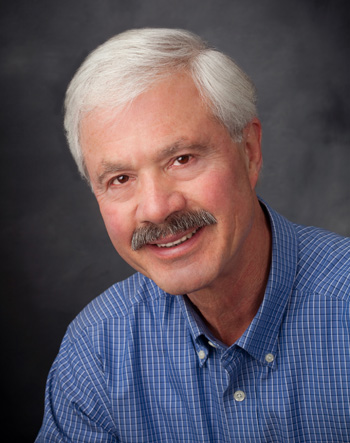Lincoln Taiz, professor emeritus of molecular, cell and developmental biology, will deliver the fall 2014 Emeriti Lecture at UC Santa Cruz on Wednesday, November 19.
His talk, "Agriculture, Population Growth, and the Challenge of Climate Change," will take place at 7 p.m. in the Music Recital Hall on the UC Santa Cruz campus. It is free and open to the public. Free parking will be available in the Performing Arts parking lot.
Taiz will discuss how the challenge of producing enough food for the world's growing population is exacerbated by global warming. World population is projected to grow to 10 billion people by 2050, and analyses indicate that agricultural productivity is not rising fast enough to meet the needs of that many people. Furthermore, climate change is expected to affect crop production in many parts of the world. According to Taiz, meeting these challenges will require a multifaceted approach.
Taiz is known for his work on plant cell walls, cell expansion, and enzymes that transport protons across membranes in plant cells. His research interests also include uptake and tolerance of metals by plants; regulation of the tiny pores called stomata that open and close to allow gas exchange in plant leaves; and the history of botany. A fellow of the American Society of Plant Biologists (ASPB), Taiz served on the editorial board of the journal Plant Physiology and is the author of several ASPB-sponsored publications. His textbook Plant Physiology, coauthored with Eduardo Zeiger, serves as an authoritative text for students studying plant biology.
Taiz earned his B.S. at the University of Utah and his Ph.D. at UC Berkeley. He joined the faculty at UC Santa Cruz in 1973. Since retiring in 2007, he has continued to work on new editions of Plant Physiology as well as other writing projects related to the history of plant biology.



